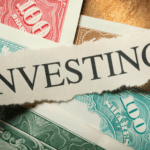Amid mounting economic pressures, private equity (PE) firms are encountering substantial obstacles in attracting funds, resorting to measures such as competitive fee reductions and early-bird incentives to lure investors. Even with these strategies in place, fundraising for the 12 months leading up to June was recorded at $592 billion, marking the lowest level in seven years. This development comes during a period where the global economic climate is unpredictable, influenced by often-volatile political environments and fluctuating market demands.
Private equity fundraising has historically been sensitive to macroeconomic factors. Over the years, as global economic conditions have fluctuated, PE firms have adapted their strategies, often increasing incentives to maintain attractiveness to investors. Recent years have seen increased competition and pressure on fees, precipitated by a slower dealmaking process and an inability to rapidly offload aging investments.
What’s Influencing Investor Hesitation?
Rising interest rates and a slowing dealmaking landscape have stifled the ability of PE firms to divest aging assets, resulting in investor apprehension toward committing funds. Attempting to counter this inertia, organizations have offered an array of discounts. Marco Masotti of the law firm Paul Weiss noted,
“They are offering a smorgasbord of discounts.”
Despite these efforts, challenges persist.
Will Political Factors Deteriorate the Sector Further?
Political circumstances, such as those set off by recent U.S. tariffs, have exacerbated issues within the private equity domain rather than sparking the expected activity boom. The anticipated economic spur has stalled, with tariffs instead compounding hurdles, according to Gabrielle Joseph of Rede Partners,
“That acceleration hasn’t materialized the way we had expected.”
Such developments create uncertainties that deter investment momentum.
A survey conducted by Campbell Lutyens highlighted the impact of tariffs, indicating a consequential decision by a significant percentage of limited partners to reduce their market involvement. Some partners have chosen to pause activity, reflecting skepticism about long-term economic policies. Meanwhile, the resulting costs from tariffs are increasingly shouldered by consumers, with elevated prices for everyday goods adding to household financial strain.
In terms of business sentiments, smaller enterprises display a cautious optimism. PYMNTS Intelligence reported a growing confidence within micro-small and medium-sized businesses regarding their future, albeit acknowledging the broader economic adversities.
Fundraising challenges within private equity underscore the intricate tapestry of market dynamics, economic policies, and investor sentiment. While current conditions stem from complex global interactions, PE firms must continuously innovate to maintain appeal to potential investors. Understanding these nuances offers valuable insight into the unpredictable and interconnected nature of economics and finance today.









